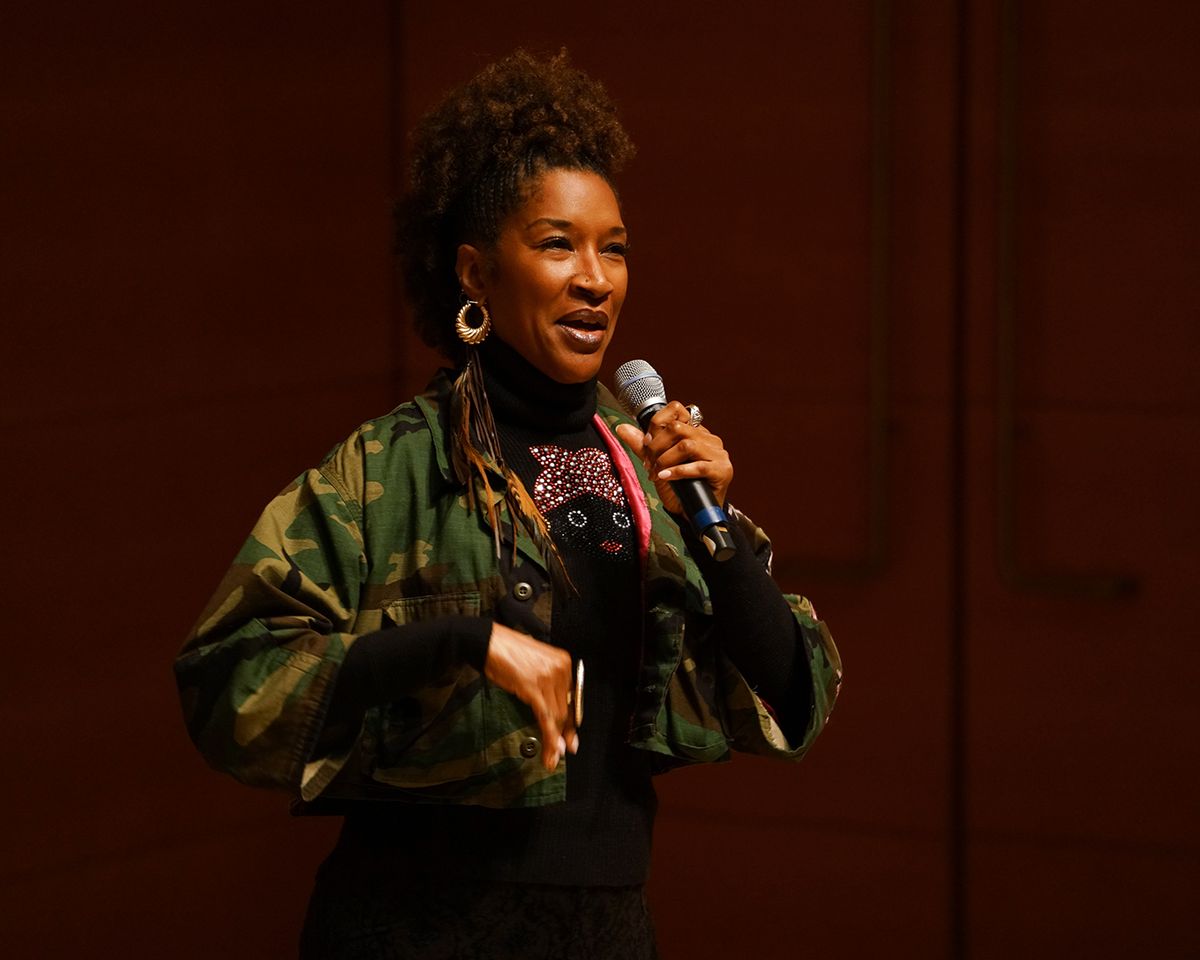On Monday evening, scores of luminaries from the worlds of art, entertainment and activism gathered at the Getty Center, schmoozing over trays of canapés and petit fours. Klaus Biesenbach, director of the Museum of Contemporary Art, Los Angeles, and the artist Marina Abramovic were there, as were the architect Kulapat Yantrasast, the artist Alex Israel and the director of the Studio Museum of Harlem, Thelma Golden. They had come to the Getty with a double purpose: celebrating the kick-off of a week of activity centred about the Frieze Los Angeles fair, and honouring the Art for Justice Fund and its founder, Agnes Gund, who started the organisation in 2017 with the goal of bringing artists and advocates together to support criminal justice reform.
Frieze launched its inaugural Los Angeles art fair at Hollywood’s Paramount Studios last year and will open its second edition later this week alongside other fairs like Felix and Art Los Angeles Contemporary, as well as several openings, performances and events taking place throughout the city this week.
“To have this many people here on a Monday night, it’s a sign that Frieze is catching on,” James Cuno, president and chief executive of the J. Paul Getty Trust, told The Art Newspaper. “The prospects are good for its long life in LA.”
The link between Frieze and the Art for Justice Fund goes back to Frieze Los Angeles 2019, when the LA-based artist Mark Bradford created an image of a police body camera that was reproduced on a billboard at the fair as well as on a print edition called Life Size. Bradford raised $1 million from the sales of the edition, which he donated to the fund.
After opening remarks by the Getty trustee Maria Hummer-Tuttle, the crowd was led downstairs into the Getty’s theater, where the writer and actress Liza Jessie Peterson performed a scene from her one-woman show The Peculiar Patriot. In the guise of her character Betsy LaQuanda Ross, Peterson expounded on the links between incarceration and profit. “Once you hear the hand cuffs go ca-chink, you hear the cash register go ca-ching!” she exclaimed.
Catherine Gund, filmmaker and daughter of Agnes Gund, then led a discussion with the artist Hank Willis Thomas, the poet and legal scholar Dwayne Betts and Tyra Patterson, a community outreach specialist with the Ohio Justice and Policy Center. The panelists discussed the role of art to empower and emancipate, as well as how the incarcerated or formerly incarcerated can work with those in positions of power to effect change.
“It is not just us who need to act,” said Patterson, who said she was wrongfully incarcerated for 23 years before gaining her freedom two years ago. “It’s people like you who can leverage your privilege. Our liberations are tied together.”
Ariel Emanuel, chief executive of the Endeavor entertainment and media agency, and Romola Ratnam, executive director of the Endeavor Foundation, then took the stage to announce that Endeavor, Frieze and Art for Justice would be partnering to create the Frieze Impact Prize, a $25,000 award to an artist working to end mass incarceration. The winner will be presented at the Frieze New York fair in May.
Emanuel also recounted a recent trip he made to the California State Prison in Lancaster, visiting with inmates who were part of a transformative art program there. Ratnam announced the inclusion of Out of Bounds, a special section of Frieze LA devoted to artwork by incarcerated men, sited on Paramount Studio’s backlot and curated by Pilar Tompkins Rivas and Rita Gonzalez, the duo responsible for this year’s Frieze Projects.
As the attendees dispersed, going off to other parties or art events, the words of Thomas hung in the air, leaving a lingering hopeful note about the radical power of creativity. “In here, we are professional storytellers in the land of make-believe,” he told the crowd. “We literally can make the world that we want to exist.”


